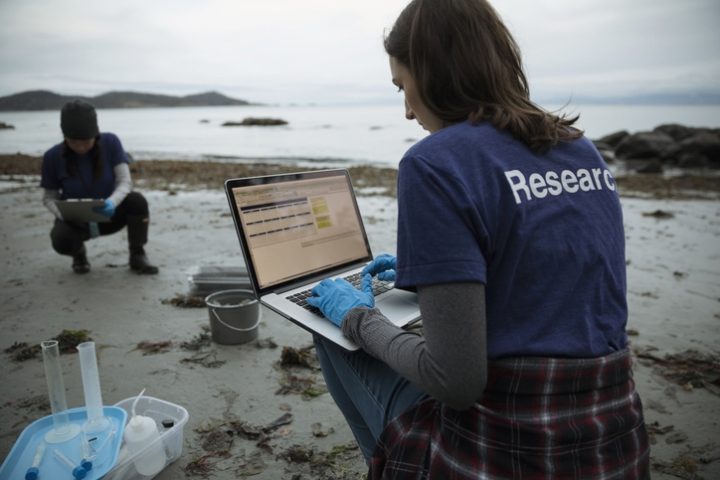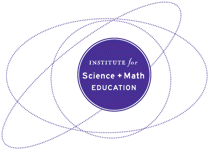How place-based science education strategies can support equity for students, teachers, and communities

Why It Matters To You
- Teachers should connect science learning experiences in and out of the classroom to students’ sense of place, cultural perspectives, and community assets and issues.
- District Staff & PD Providers should empower teachers with resources, examples, strategies and opportunities to foster a sense of place and build a community of educators and students.
- School Leaders should support pathways to connect schools to communities, including specific strategies for science learning to take place outside of the classroom.
What Is The Issue?
Meaningful interactions with elders, scientists, and community partners focused on studying locally relevant phenomena and identifying authentic design problems can engage students in learning in a way that teaching abstract concepts or broader global issues may not. It can also foster local agency, responsibility, accountability, and relationships through the development of a shared sense of place. Place-based science education is fundamentally transdisciplinary and cross-cultural, fostering scientific communication practices needed to address existing and emerging problems while truly involving stakeholders from diverse backgrounds.
Authors:
BY SARAH COLEMAN, PAULINE CHINN, DEB MORRISON & LAUREN KAUPP | MARCH 2019
Reflection Questions
- Where do you see opportunities to strengthen connections to local land & community? What ways of knowing are culturally and/ or scientifically relevant?
- How will you recognize success in your place-based efforts?
- What are local examples of language reflecting historical power dynamics / inequities?
Things to Consider
- Center multiple relations to place: Phenomena and problems should be selected to connect to local places and to the multiple ways in which people relate to that place. These connections are influenced by the diversity of communities interacting with each other over time to develop a sense of place and to share ways of knowing about the nature of the place as it changes (e.g., urban).
- Relate places to cultural lifeworlds. Place-based education can be part of a comprehensive culturally responsive pedagogy to reach all students. This requires rethinking the way schools use resources, going beyond textbook teaching, and fostering connections and relationships with students and community in relation to place.
- Engage in participatory curriculum development. When developing phenomenon-centered curriculum, community participants need to be authentically involved to bring local knowledge and practices into science learning. Teachers need to work in collaboration with each other and community partners in participatory ways to integrate local learning contexts and resources into classroom-based learning. Invite stakeholders into collaborative curriculum development in ways that reshape power dynamics related to gender, language, culture, and place to open space for marginalized communities and center a focus on justice. Making community connections take time and supportive structures as they involve trust-based relationships and new ways of sharing power during design.
- Get learners networked to relevant efforts. Youth conferences and Science and Engineering forums, and community-based service learning can serve to connect students with each other and community partners to develop their sense of place, to share their learnings, to identify community needs, and to develop community science literacy (Also see STT#39 and STT#45).
- Relate Indigenous and Western science knowledges. Cultural practitioners and honored community leaders, such as Kūpuna (elders) in Hawai‘i, can help to connect local and Indigenous knowledge to standards-based science teaching and learning. Culturally sustaining relationships between communities and scientists can provide contexts for place-based learning for students.
Attending to Equity
- Acknowledge that science has historically been taught through a Western lens and honor cultural ways of knowing and communicating.
- Attend to connections of language, place, and history in learning and cultural bridging. Indigenous languages often record environmental knowledge in organism and place names, sayings, and stories.
Recommended Actions You Can Take
- Before starting with students, build your knowledge or place-based STEM learning: conduct community asset mapping to identify community resources, scientists involved in the place, and speak to elders.
- Recognize that long-term community engagement develops through participatory research around shared, use-oriented STEM research projects (see Kūlana Noi‘i the research standards).
- Engage students in collaborative outdoor learning, including stewardship and citizen science, by working with local scientists and cultural practitioners.
- Honor the written and orally recorded knowledge of the local place by involving students in culturally appropriate interviews, collaborative design thinking, self-documentation, and the study of historical records.
- Use locally meaningful student-generated questions and phenomena and engage students in engineering design projects with community partners.
ALSO SEE STEM TEACHING TOOLS
STEM Teaching Tools content copyright 2014-22 UW Institute for Science + Math Education. All rights reserved.
This site is primarily funded by the National Science Foundation (NSF) through Award #1920249 (previously through Awards #1238253 and #1854059). Opinions expressed are not those of any funding agency.
Work is licensed under a Creative Commons Attribution-ShareAlike 4.0 Unported License. Others may adapt with attribution. Funded by the National Science Foundation (NSF). Opinions expressed are not those of any funding agency.


 Email Feedback
Email Feedback


